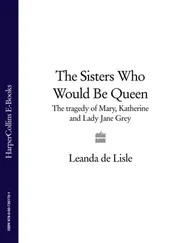Peter Newman, the mercurial editor of Maclean’s , Canada’s only popular political magazine, was impressed by Amiel’s right-wing, anti-authoritarian, iconoclastic criticism of modern fads. In 1966 she had written an astutely argued article, ‘Let’s Reinstate Debtors’ Prisons’, for the magazine, advocating that debtors who failed to pay their bills should be imprisoned. 27 Ten years later Marci McDonald, a star columnist, resigned, and there was a vacancy. ‘Marci was a bitch,’ said Newman admiringly, ‘but we’ve got a bigger bitch to take her place.’ Amiel’s extreme conservatism, he calculated, would attract profitable controversy.
National prominence enhanced Amiel’s visible self-confidence. ‘She was the sort of woman,’ Newman noted, ‘who kept spilling out of her dresses, then blamed the dresses.’ 28 Her response to those who whispered about implants was savvy. ‘If I used silicone,’ she told Newman, ‘my breasts would be twice as big. I don’t do things by halves.’ 29 Fame and independence sparked her weariness with Jonas. Marrying a Jew, she discovered, was not such a good idea after all. His emotional needs were too similar to her own, and rather than partying, he preferred staying at home. Jonas was not the first man to discover the truth of her confession, ‘I’m polyandrous.’ One man could not satisfy her. She was constantly propositioned by men and women, married and single. The ferociously heterosexual Amiel wanted to experiment with most kinds of relationships and sexual antics.
Hanging around the Maclean’s office late one evening towards the end of 1976, Amiel noticed Peter Brimelow, the magazine’s handsome twenty-nine-year-old business editor, born in Lancashire, England. Drawing on her consummate experience, she made signals to encourage his approach. The long dark hair and green eyes of the seductress who had just been named ‘Canada’s most beautiful woman’ by a magazine was irresistible to the younger journalist, unaware of the licentious world he was entering.
‘I’ve got to go for an appointment,’ Amiel often told Jonas, with whom she was writing By Persons Unknown , a prospective non-fiction bestseller about a Canadian businessman who hired killers to murder his wife, a fashion model. In great secrecy she visited Brimelow’s flat. If she went away overnight, Jonas believed she was travelling on an assignment. Her infidelity evoked no crisis of conscience. As with her other relationships, Amiel’s self-indulgence was to please her latest admirer. ‘You’re a luxury,’ she told Brimelow in bed. ‘You’re of no use to me other than for sex and passion.’ Bites and scratches were his badges of her eroticism. ‘What makes people good lovers,’ she later reflected, ‘is not their sexual technique but their sexual being. Extremes of ineptitude aside, it is not how a man touches you, but who the man is that determines your sexual response.’ 30 The rawness was her attraction: ‘No matter how many times the act is performed, one is still in awe of its potential … whether it is done for love or for money, for spite of for kicks, the sexual act remains the key to our entire being.’ 31 Whether fooling around with Brimelow, joking about another affair with a Hungarian bankrobber who ‘stored gelignite under my bed’, or mimicking mutual friends, Amiel blessed her eternal youth. ‘I’ll never get old,’ she said. ‘That’s a battle I’ll never lose.’ The chilling implication was her preference for death rather than looking at a wrinkled face in the mirror. Inevitably, the relationship bore a cost. Brimelow was not the first to discover that losing one’s heart to Amiel meant a loss of self-control, and she enjoyed witnessing helplessness in her men. Lying in bed with Brimelow early on New Year’s Eve in 1976, she knew that later, while she was celebrating with her husband, Brimelow would be partying with a girlfriend. Seized by a mixture of insecurity and fury at her inability to control Brimelow, she dug the nails of both hands deeply into his chest, drawing blood. Brimelow’s girlfriend, Amiel smiled, would get the message.
Hard work, stylish writing, deep thought, exceptional looks and unconventional opinions had transformed Barbara Amiel into the nation’s conservative star. Describing herself with relish as a ‘very merchandisable’ right-wing pundit or ‘the redneck in a Givenchy dress’, she invited notoriety and a reputation for bitchiness as the Jew who criticised Israel, the advocate of personal responsibility and the critic of equal-opportunity politics. 32 Without loyalty or deference to the Canadian establishment, the outsider reproached the natives. While pouting about her need for privacy, revelations about her sentiments in Maclean’s became the cornerstone of her journalistic shock. Like many celebrity pundits, she occasionally confused intelligence with wisdom. Her prominence transformed a spat with the Ontario Human Rights Commission after she described Germans during the First and Second World War as ‘Huns’ into a national debate. ‘You’d have saved us a lot of trouble,’ said Newman, ‘if you’d called them “Sauer Krauts”.’ To Newman’s surprise, Amiel burst into tears. ‘She’s a woman without a sense of humour about herself,’ the editor concluded, 33 puzzled by her insistence that ‘harsh words can’t harm me’. 34 Her sensitivity did not always extend to thoughtfulness about others. Careless about the magazine’s schedules, she delivered articles with trembling hands at the editorial office after the deadline, clutching her head to relieve the pain of giving birth to a masterpiece, and awaited the applause. ‘A drama queen,’ concluded Peter Newman, ‘and a whining pest over each lost comma and adjective.’ For sympathy, she constantly telephoned Peter Brimelow. Even in the middle of the night she required an audience to hear about her work, her upsets and the praise she had attracted.
The relationship between Amiel and Brimelow was intense, yet to Brimelow’s despair she would not abandon Jonas. In revenge, Brimelow began an affair with Amiel’s assistant Dia, an attractive Anglo-Indian. ‘You’re having her, aren’t you?’ screamed Amiel. ‘How could you?’ Brimelow was unapologetic. Amiel refused to leave Jonas, he retorted, so why could he not also have an affair? Walking a tightrope, Amiel justified her own infidelity while condemning her lover’s.
In early 1979, Brimelow accepted a job in Washington, where his latest girlfriend, called Maggie, lived. In recent weeks he had described Maggie to Amiel as a potential wife. Amiel was given a choice. If their relationship was to survive, she would have to leave Toronto and her husband. Still undecided, she arrived at Brimelow’s flat with her sister Ruth. After Ruth’s departure, Amiel remained to say farewell. In bed, she announced a game of noughts and crosses on Brimelow’s chest. Her scratch marks were deep, the blood oozed. She knew that Maggie would understand.
A transitional moment in Amiel’s life had arrived. She was still married to Jonas, but she visited Brimelow three times in Washington, and at the same time started an affair with Sam Blyth, thirteen years younger than herself, and with similar looks to Brimelow’s. After two months, her decision was final. ‘It’s time to see Sam,’ she told a friend. She abandoned her husband and long-time lover, and moved into Blyth’s dilapidated Toronto home. The dalliance, she reckoned, would extricate herself from her marriage. Handsome, charming and poor, Sam Blyth offered new excitement. ‘A big adventure,’ said Amiel. ‘A lot of fun, like a journey in a big cookie jar.’ 35 Brimelow took the news calmly, while Jonas was distressed about no longer meeting Amiel’s requirements. ‘She was not a housewife,’ he said, ‘and I am not a house-husband. We agreed what we should do is find a wife, for both of us.’ 36 Jonas soon recovered. ‘How would you like to go to Paris for breakfast?’ he asked a Korean woman managing a restaurant. They eventually married.
Читать дальше












